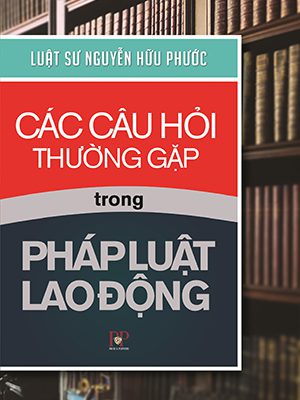
Sharing of expertise
Question 9: What type of contract do paid internship contracts fall into from the perspective of labour law? If an internship contract is a training contract, must Employers register training activities and comply with the requirements on training programs and teacher’s certificates in accordance with the enterprise law?
What type of contract do paid internship contracts fall into? Case 1: One party to the contract is a student expecting graduation and wishing to work as an Intern for the Employer. In consideration of the regulations of the Labor Code, there are no regulations governing the admission of Interns. However, pursuant to Article 12.6…
Question 8: Must Employers pay Employees severance allowances in cases where Employees are assigned to other jobs due to Employers’ transfer of ownership or the right to use corporate properties? If yes, what salary level will serve as the basis for Employers to pay severance allowances?
Pursuant to Article 45 of the Labor Code, in case of transfer of the ownership or the right to use corporate properties, Employers take the following responsibilities: Set up a plan to employ labour pursuant to the Labor Code[1]; Calculate statutory retrenchment allowances to pay Employees who must terminate LCs according to the said labour…

Question 7: May Employers set out a longer prior notice period upon Employees’ termination of LCs than the one prescribed by law? How do Employers extend the prior notice period upon Employees’ termination of LCs?
May Employers set out a longer prior notice period upon Employees’ termination of LCs than the one prescribed by law? Pursuant to the general stipulations on the prior notice period upon termination of LCs, Employees must comply with the prior notice period of at least 3 working days for the seasonal or specific job-based LC…
Question 6: Normally, upon the beginning of a new employment, Employers and Employees will sign probationary contracts or offer letters with the probationary period based on the type of LC that will be signed later on. Upon the end of the probationary period, if Employees satisfy the job requirements, then LCs will be signed. During the probationary period, if Employers realise that Employees are not qualified, they may notify Employees of the termination of the probationary period immediately. However, if Employers and Employees sign LCs at the beginning of the employment, in which a probationary period is specified based on the type of LC, and Employers realise that Employees are not qualified during the probationary period, can Employers terminate the probationary period? Or is this considered as a case where LCs have been signed so Employers must have a legitimate reason as required by labour law to terminate LCs as well as comply with the provision on notification prior to the unilateral termination of LCs?
The applicable labour law does not expressly stipulate if at the beginning of a new employment Employers are allowed to sign LCs in which a probationary period is specified. However, pursuant to Article 29.1 of the Labor Code, only when the probationary period ends and Employees can meet the requirements agreed upon by the parties…
Question 5: How do Employers deal with Employees who do not give feedback on the notice of trial job result?
Under the labour law, Employers are obliged to inform Employees of the trial job result during probation as follows[1]: Notifying within 3 days prior to the end of the probationary period for Employees with a professional or technical qualification from college or higher (maximum probationary period of 60 days) or for Employees with a professional…
Question 4: May representative offices of foreign traders in Vietnam recruit Vietnamese Employees by themselves to work for them? If they are not allowed to do this, which state agencies must they contact? Must representative offices of foreign traders pay recruitment fees to these state agencies? If these state agencies cannot recruit the qualified Employees, may representative offices recruit Employees by themselves? How long does it take for state agencies to recruit the qualified Employees? If representative offices are allowed to recruit Employees, must they periodically report this issue to those state agencies?
May representative offices of foreign traders in Vietnam recruit Vietnamese Employees by themselves to work for them? If they are not allowed to do this, which state agencies must they contact? Must representative offices of foreign traders pay recruitment fees to these state agencies? As prescribed by law[1], representative offices of foreign traders in Vietnam…
Question 3: Is a collaboration contract a type of LC? What are the legal risks for Employers upon entering into a collaboration contract?
Is a collaboration contract a seasonal or specific job-based LC? Legal grounds for governing a collaboration contract As a matter of law, a collaboration contract may be considered a type of service contract because of the existence of a relationship between the service provider and the service user. The concept of service contract is currently…
Question 2: What are the subjects of application of the Vietnamese labour law? Which legal relationships are governed by the Vietnamese labour law? Is a valid LC a compulsory precondition in the employment relationship?
What are the subjects of application of the labour law? Pursuant to Article 2 of the Labor Code, the subjects of application of the Labor Code include: Vietnamese Employees[1] : Employees of full 18 years of age and over; Minors of full 15 years to under 18 years of age who have their legal representatives’…
